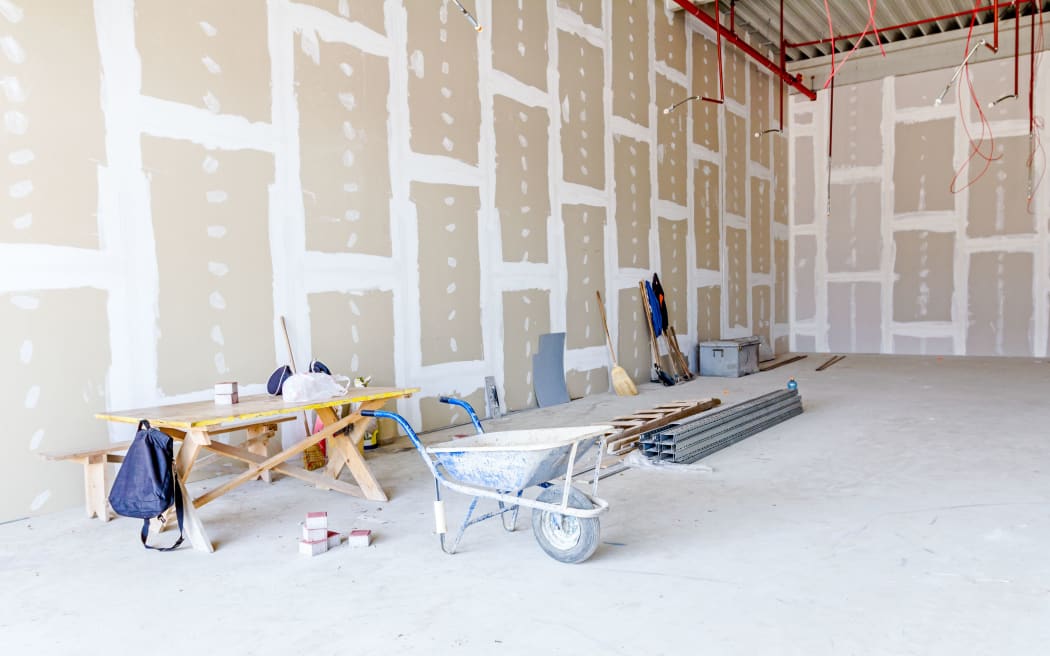The Commerce Commission will today release the draft findings of a study into New Zealand’s residential building supplies market, as the cost of building or renovating a house goes through the roof.
Severe shortages of plasterboard, timber and labour have crippled some businesses.
Photo: 123RF
The competition watchdog is scrutinising competition in the industry, with a particular focus on concrete, plasterboard and structural timber, in a year-long market study similar to those done on the fuel and grocery sectors.
Chronic shortages of plasterboard, timber and labour have crippled some businesses, with certain materials as much as 30 percent more expensive than they were 18 months ago.
CBS Co-operative chairperson Carl Taylor said some firms had gone bust because of cash-flow problems.
“There are still a lot of guys tipping over,” he said.
“A lot of them are going to the wall because they simply can’t control building material prices within their quotes.”
Uncertainty in the market meant builders were having trouble pricing jobs, Taylor said.
“A lot of the suppliers are now only guaranteeing their quotes for no more than about five days, where it used to be up to 30 so it’s making it very hard for builders to quote work,” he said.
The Commerce Commission study was announced last November, amid concerns about a perceived lack of competition in the residential sector and overpriced building supplies.
Paul Maxim from Wellington’s Promax Builders said he hoped the commission had closely examined why New Zealand-made structural timber was so expensive.
“We seem to be at the mercy of Fletchers and the big companies that produce the timber, sell the product overseas and charge the New Zealand domestic market accordingly,” he said.
“It’s like cheese – we seem to be constantly paying more and more for a product that is produced in New Zealand.”
Last month inflation figures showed the cost of building a new house had jumped 18 per cent in 12 months.
Building Industry Federation chief executive Julien Leys said the consequences for property owners were huge.
“They’re looking at paying potentially 20 percent more to build a home than they might have done previously, which is huge, and has led, as we know, to some first home-owners walking away,” he said.
While stock was gradually returning to some yards, Carl Taylor said the right plasterboard, timber, decking and tapware were still in short supply, which was tough on small businesses.
“They’re guys that would generally go their merchant once or twice a day to pick up one sheet of Gib and a couple of lengths of timber just for their smaller jobs and they just can’t do that. A lot of them are certainly struggling in that regard,” he said.

The Commerce Commission is scrutinising competition in the building industry.
Photo: RNZ / Alexander Robertson
The government established a ministerial taskforce to investigate plasterboard shortages in June.
Fletcher Building – which has a near monopoly on the market – has reconfigured its factory, increased imports and issued royalty-free licences to 10 parties to import foreign-made plasterboard.
The company expects the plasterboard market to return to “equilibrium” by October.
The Commerce Commission’s draft report will set out its preliminary findings and any draft recommendations to improve competition in the industry, before a final version is published in December.





















Discussion about this post